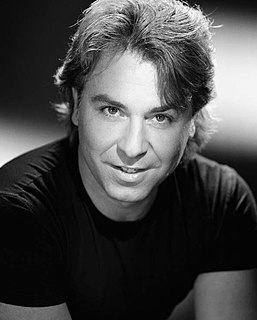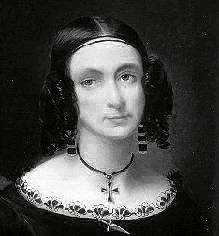Related Research Articles

Ernani is an operatic dramma lirico in four acts by Giuseppe Verdi to an Italian libretto by Francesco Maria Piave, based on the play Hernani by Victor Hugo.

Victor Marie Hugo was a French poet, novelist, and dramatist of the Romantic movement. Hugo is considered to be one of the greatest and best-known French writers. Outside France, his most famous works are the novels Les Misérables, 1862, and The Hunchback of Notre-Dame, 1831. In France, Hugo is known primarily for his poetry collections, such as Les Contemplations and La Légende des siècles.

Roberto Alagna is a French tenor. He was born in Clichy-sous-Bois, Seine-Saint-Denis, France and obtained French citizenship at age 18, while also retaining his previous Italian citizenship.

Angela Gheorghiu is a Romanian soprano.

Alexander Sergeyevich Dargomyzhsky was a 19th-century Russian composer. He bridged the gap in Russian opera composition between Mikhail Glinka and the later generation of The Five and Pyotr Ilyich Tchaikovsky.

Felip Pedrell Sabaté was a Spanish composer, guitarist and musicologist.

Hugo David Weisgall was an American composer and conductor, known chiefly for his opera and vocal music compositions. He was born in Ivančice, Moravia and moved to the United States at the age of eight.

Le jongleur de Notre-Dame is a three-act opera by Jules Massenet to a French libretto by Maurice Léna. It was first performed at the Opéra Garnier in Monte Carlo on 18 February 1902.

Louise-Angélique Bertin was a French composer and poet.

Cyrano de Bergerac is a four-act opera with music by Franco Alfano, and libretto by Henri Caïn, based on Edmond Rostand's drama Cyrano de Bergerac.

L'amant jaloux, ou Les fausses apparences is a French comédie mêlée d'ariettes in three acts by André Grétry first performed at Versailles on 20 November 1778. The libretto is by the Irish playwright Thomas Hales with the verse passages provided by F. Levasseur. It was based on the play The Wonder: A Woman Keeps a Secret (1714) by Susannah Centlivre.

François Emmanuel Joseph Bazin was a well-known French opera composer during the nineteenth century. His works are not widely performed today.

Fiesque is an opera by the French composer Édouard Lalo. The libretto, by Charles Beauquier, is based on Schiller's 1784 play, Die Verschwörung des Fiesco zu Genua, an account of the conspiracy in 1547 led by Fiesque against the ruling Doria family.

Joseph is an opéra comique in three acts by the French composer Étienne Méhul. The libretto, by Alexandre Duval, is based on the Biblical story of Joseph and his brothers. The work was first performed by the Opéra-Comique in Paris on 17 February 1807 at the Théâtre Feydeau. It mixes musical numbers with spoken dialogue and is described in both the libretto and the printed announcement for the opening night as a "drame en trois actes, mêlé de chant", although the Méhul scholar Elizabeth Bartlet catalogues it as an "opéra en prose".
Le roi Arthus is an opera in three acts by the French composer Ernest Chausson to his own libretto. It was composed between 1886 and 1895, and first performed 30 November 1903 at the Théâtre de la Monnaie, Brussels, after long delays. The musical style is heavily influenced by the works of Richard Wagner, particularly Tristan und Isolde and Parsifal, as well as César Franck. The scenery at the premiere was designed by Albert Dubosq and the symbolist painter Fernand Khnopff; it was executed by Dubosq's atelier together with Chausson's brother-in-law Henri Lerolle and under the supervision of Chausson's widow.

Néron (Nero), is a grand opera in four acts by Anton Rubinstein to a libretto by Jules Barbier, loosely based on the story of the Roman Emperor Nero.

La Esmeralda is a grand opera in four acts composed by Louise Bertin. The libretto was written by Victor Hugo, who had adapted it from his novel Notre-Dame de Paris. The opera premiered at the Théâtre de l'Académie Royale de Musique in Paris on 14 November 1836 with Cornélie Falcon in the title role. Despite the lavish production, the premiere was a failure, and La Esmeralda proved to be the last opera composed by Bertin, although she lived for another 40 years.
Amanda Juliet Holden is a British musician, librettist and translator.
Maria Tudor is an opera in four acts composed by Antônio Carlos Gomes to an Italian-language libretto by Emilio Praga. The libretto is based on Victor Hugo's 1833 play Marie Tudor, which centers on the rise, fall and execution of Fabiano Fabiani, a fictional favourite of Mary I of England. The opera premiered on 27 March 1879 at La Scala, Milan with Anna D'Angeri in the title role and Francesco Tamagno as Fabiani. The opera was a failure at its premiere and withdrawn, a heavy blow to Gomes who was in serious financial and family difficulties at the time. He returned to his native Brazil the following year.

James Levine's 25th Anniversary Metropolitan Opera Gala was a concert, lasting approximately eight hours, that the Metropolitan Opera staged in 1996 in honour of its then principal conductor and Artistic Director. Excerpts from the gala were released by Deutsche Grammophon on a 72-minute CD, a 161-minute VHS videocassette and a 161-minute double Laserdisc in 1996, and on a 293-minute double DVD in 2005.
References
- ↑ Toilers of the Sea Victor Hugo - 2008 "For example, Hugo's novel against capital punishment, The Last Day of a Condemned Man, has recently been adapted into an opera by David Alagna (libretto by Frédérico Alagna). Their brother, tenor Roberto Alagna, performed in the "
| This article about a French composer is a stub. You can help Wikipedia by expanding it. |